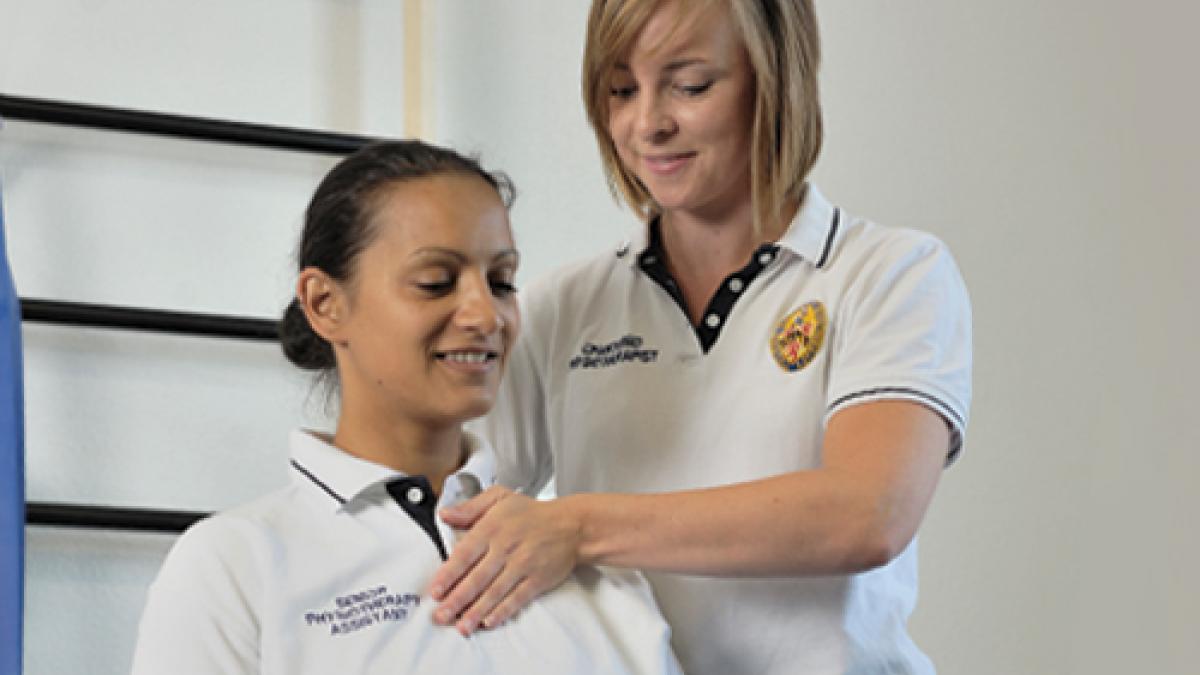The CSP has welcomed new plans to improve the wellbeing of NHS staff in England, published today by NHS England and NHS Improvement (NHSE&I) and Health Education England (HEE).

A new recruitment, retention and support package is outlined in the second NHS People Plan, which aims to prioritise staff wellbeing in the wake of the Covid-19 pandemic.
The Plan sets out a series of practical measures, including the introduction of more flexible working patterns, risk assessments for vulnerable staff, ‘safe spaces’ where staff can rest and recuperate, wellbeing guardians and practical support to keep staff physically safe and healthy.
It also includes a recruitment and retention strategy that will see NHS England:
- Work with universities to increase over 5,000 undergraduate places for nursing, midwifery, allied health professions, and dental therapy and hygienist courses from September this year
- Provide a new £10 million fund for clinical placements for nurses, midwives and allied health professionals, including physiotherapists.
A welcome step forward
CSP chief executive Karen Middleton said: ‘There is much to welcome in this plan, not least the commitment to support the expansion of multidisciplinary teams in primary care, providing risk assessments for vulnerable staff and more flexible working options.
'The commitment to expand AHP university places and extra funding for placements is particularly welcome. But we need the same commitment from trusts to provide placements and to guarantee jobs for these students.
We are pleased to see an emphasis on staff wellbeing and equality, diversity and inclusion. The emphasis on improving conditions for all in the health and care sector, rather than just those in direct NHS employment, is also a step forward.
The power of partnership working
The Plan details actions expected of NHS leaders in 2020 and going into 2021.
The document acknowledges the severe workplace pressures experienced by NHS staff, and only brought to light by the Covid-19 pandemic. Access to a dedicated support line and bereavement support an example of Plan’s recognition of staff health and wellbeing.
In this regards, the Plan is a testament to the partnership working that went into its own development – with the CSP and other trade unions involved from the outset through the People Plan Advisory Group.
Claire Sullivan, CSP Director of Employment Relations and Union Services is a member of this Group, and also of the England Social Partnership Forum. Claire said:'It is the right time to publish this shorter-term People Plan. As NHS staff continue to work so very hard to respond to Covid, prepare for the coming winter, and open up suspended services, it is good to see the service’s commitment to them set out here.
Our longstanding partnership relationships across England, involving representatives from health unions, employers and government have stood us in good stead in this particularly demanding year.
CSP Analysis
The CSP welcomes the commitments and aspiration of the People Plan. Particularly positive is the accompanying ‘People Promise’, and a commitment that from January 2021 all NHSE&I and HEE vacancies will be made available for applicants seeking flexible working.
This reflects the CSP’s advocacy for flexible working, where we have detailed how alternative working patterns can be made to work well for staff, employers and patients alike.
The Plan also sees equality, diversity and inclusion initiates taking centre stage. Every NHS Organisation will be required to publish its progress in improving the representation of black and ethnic minority workers at all levels; and complete risk assessments for all vulnerable staff –including black and ethnic minority workers.
With recent reports indicating the slow progress is being made with conducting covid-19 risk assessments, the implementation of these commitments must be a priority. Further, MSK health and other major risk areas - unacknowledged in the Plan – should be within scope of risk assessments.
The physiotherapy profession also falls within scope of some welcome initiatives aimed at growing the health and social care workforce:
- The Plan confirms funding for 26,000 additional primary care staff – including First Contact Physiotherapists – by 20204, with HEE committing to the full roll of primary care training Hubs next year to support training for these roles;
- Encouragement for former staff to return to the NHS. This encouragement should make it possible for managers to take on permanently those who stepped up to work in the NHS during the pandemic, including those returning to practice.
The CSP will be asking for more detail regarding these commitments, and calls for expanding the scope of other workforce development initiatives.
The CSP wants training grants for the mental health and cancer workforce to be made available physiotherapists working in these fields. Likewise, support worker should get access to personal training and development budgets, currently planned only for registered professionals.
Implementing commitments in your area
As the Plan acknowledges, there is a huge work ahead required to make these commitments a reality. Claire Sullivan said:
Strong partnership arrangements at local, regional and national level will be even more crucial to make sure that the commitments set out in the plan become a reality across England.
Responsibility for the Plan’s implementation has now moved to regional Integrated Care Systems, who will be developing local implantation plans in partnership with new regional People Boards. There will then be plenty of opportunities for physiotherapy leaders to shape workforce plans and improve working conditions in their local area.
Number of subscribers: 6